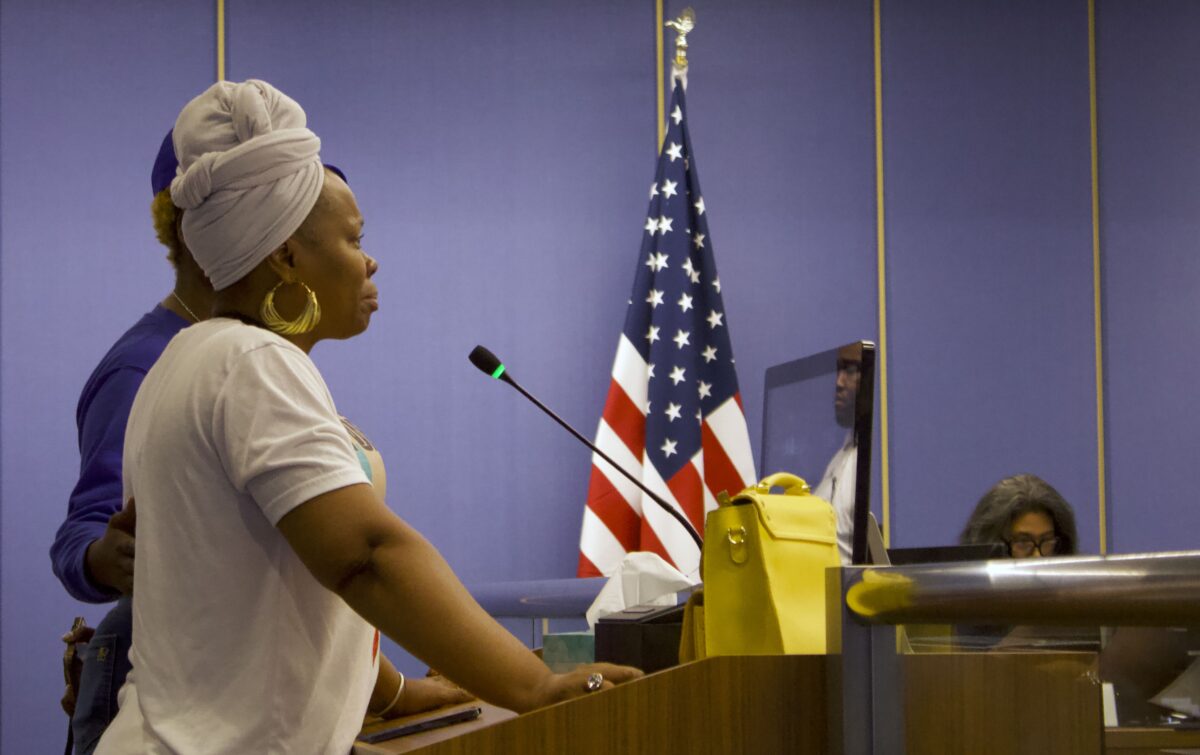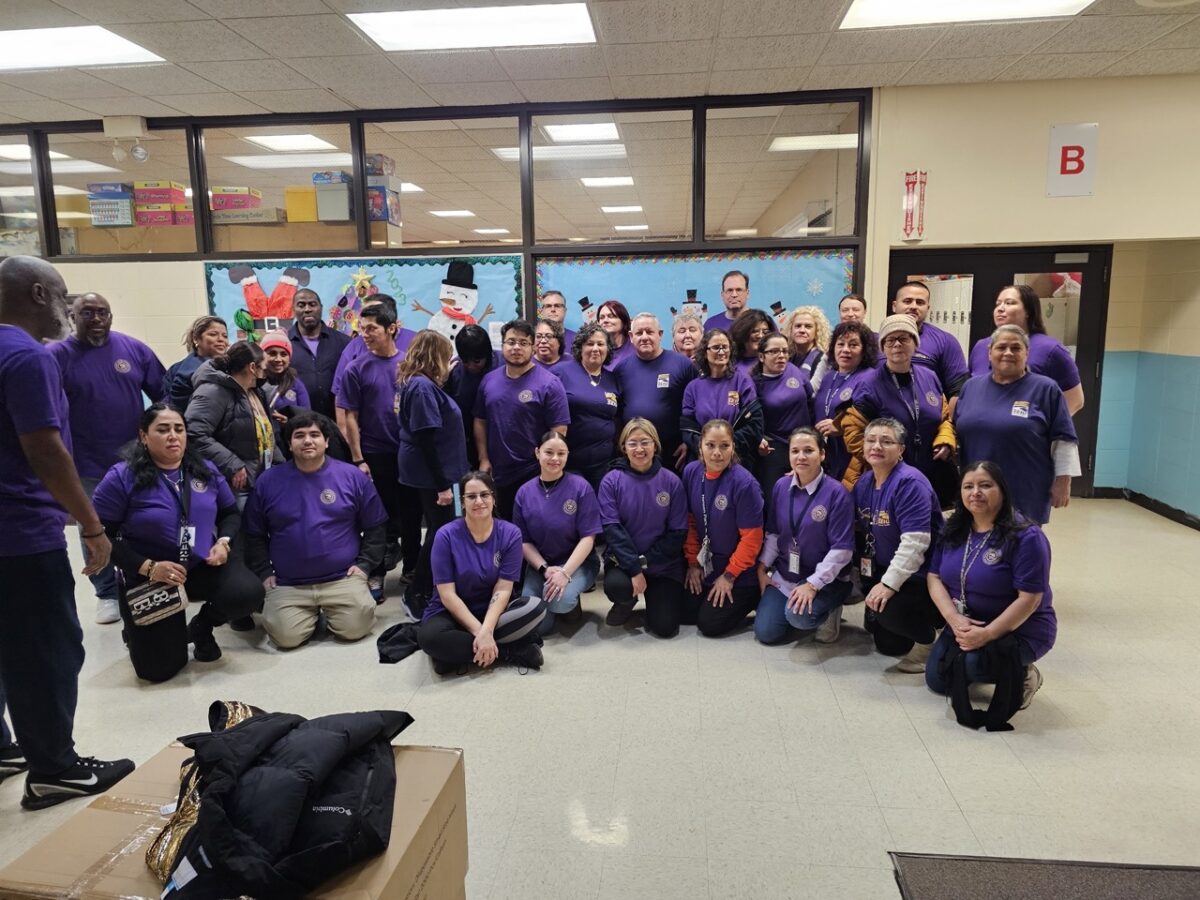Vickki Willis couldn’t hold back tears as she addressed members of the Chicago Board of Education during a budget hearing on Wednesday.
Her son, Alteriq Pleasant, died while incarcerated at Cook County Jail in 2022. Willis traces the series of events that led to his death back to cuts to special education in the mid-2000s under a Chicago Public Schools (CPS) initiative dubbed Renaissance 2010. Pleasant had been a student at Near North Elementary, which served special-ed students. The school was later closed in 2013 by then-mayor Rahm Emanuel, and now houses high-end apartments.
After losing access to special-ed services, Pleasant eventually wound up living on the streets, Willis said. Arrested for battery on a police officer, which his family says was a false charge, he had a medical emergency at the jail and was rushed to Mt. Sinai hospital, where he died. He was twenty-seven years old.
Willis told the Weekly she took her grandson, also a special-needs student, out of CPS this week due to fear of further budget cuts.
In July, CPS laid off 123 special education teachers and 677 special education classroom assistants. A district spokesperson told CBS News the layoffs were “not related to the deficit and should not be framed that way.” The district says the layoffs are part of a restructuring of how CPS allocates special education teachers to schools, and that it plans to rehire about 80 percent of those professionals.
A CPS spokesperson did not immediately respond to the Weekly’s questions about the special-ed layoffs.
Willis pleaded with the board not to cut funding for special education in this year’s school budget.
“I witnessed, I lived through it, what happens when the budget is cut,” she told board members. “When you cut the budget, bad things have happened to those individuals like my son and my grandson who need those self-contained classrooms and the resources and teachers that go with it.”
Willis was one of several community members who spoke at Wednesday’s budget hearing, which also saw representatives from the Chicago Teachers Union (CTU), Service Employees International Union (SEIU), elected officials, charter-school advocate Juan Rangel, and Kids First Policy Director Hal Woods deliver remarks. Alds. Nicole Lee (11th Ward) and Nicholas Sposato (38th) joined the meeting remotely to offer support for the proposed budget, as did State Representative Ann Williams, whose 11th District includes several North Side neighborhoods.
Most speakers agreed on one point: They believe the state should provide more funding to Chicago schools. The school district is already slated to receive $1.9 billion from the state this fiscal year.
The $10.25 billion budget proposed by CPS interim CEO Macquline King would close a $734 million gap with a combination of non-classroom and central office budget cuts, millions in projected new revenues and debt refinancing, as well as by shifting a $175 million pension payment to the city. The city was responsible for covering pension payments until 2020, when then-mayor Lori Lightfoot negotiated for CPS to cover a portion of them each year.
CTU representatives urged King to revise the budget to keep the pension payments in, and to take out a loan to close the deficit instead. Last week, eleven of the board’s twenty-one members sent a letter to King demanding the same.
King’s budget also relies on a projected—but not guaranteed—$300 million tax increment financing (TIF) surplus from the city, a plan board member Jitu Brown called “politically naive.” In a presentation to the board, CPS Chief Budget Officer Michael Sitkowski said the expected TIF surplus funding is reasonable.
During the meeting, Board President Sean Harden said CPS needs a contingency plan if the TIF surplus doesn’t come through.
“For me, it’s just not enough,” he said. “I’m not speaking on behalf of the board; I’m speaking as Sean Harden. It’s not enough to bake this in as our means of balancing the budget without having IGA [an intergovernmental agreement] or at least some form of commitment from the city.”
The board is scheduled to vote on the 2026 budget at its August 28 meeting.
Jim Daley is the Weekly’s investigations editor.




